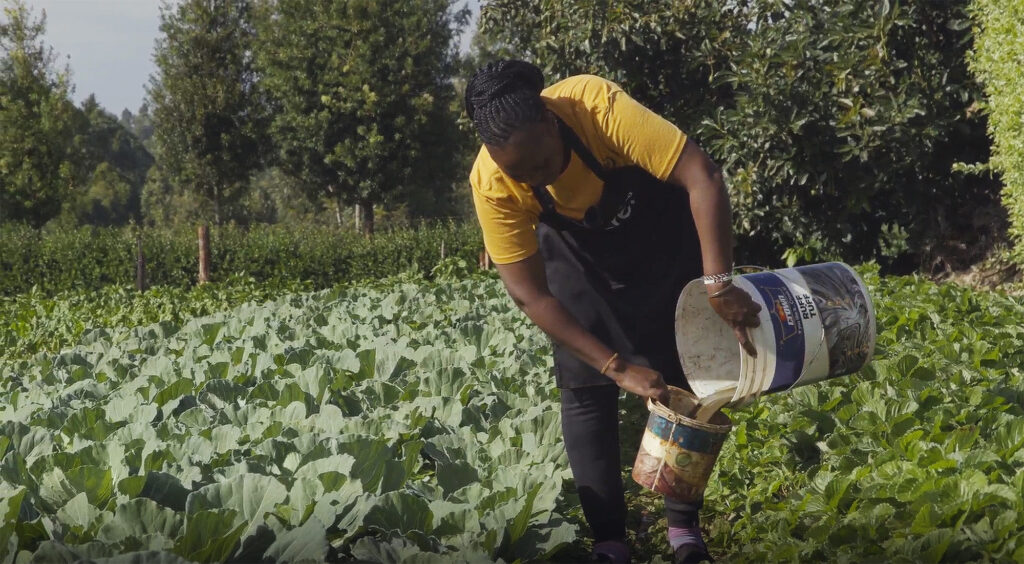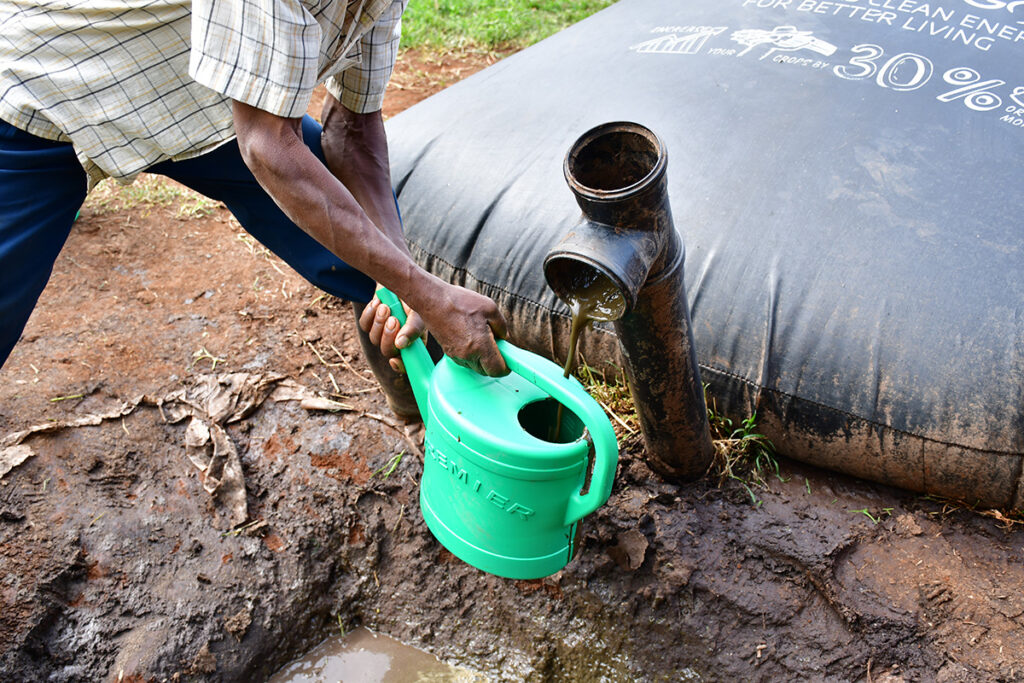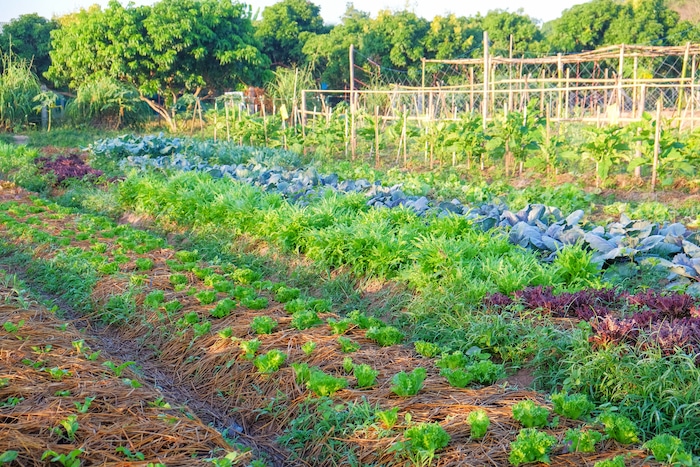
What is Organic Vegetable Farming?
Organic vegetable farming is cultivating vegetable crops through sustainable agricultural techniques without using herbicides, synthetic pesticides, chemical fertilizers, or genetically modified organisms (GMOs). Instead, it produces genuine vegetables using only organic fertilizers and natural processes like crop rotation, companion planting, or biological pest control.
It’s all about embedding agricultural practices in natural cycles to maintain soil fertility and support biodiversity in the long run. It’s a holistic approach that can produce chemical-free vegetables at scale and keep the soil healthy for future generations.

Organic Certification and Standards
In the United States and the European Union, organic vegetable farming is subject to precise standards and certifications that ensure organic food authenticity and quality. Regulatory bodies develop and enforce these standards to meet the increasing demand for organic products while maintaining consumer trust.
The USDA National Organic Program and EU Organic Regulation maintain lists of banned substances, including synthetic pesticides, herbicides, and chemical fertilizers, that are incompatible with organic production. Farmers practicing sustainable agriculture must adhere to these lists and use natural pests, disease management alternatives, and other organic methods to have their healthy food certified as organic.
In the United States and the European Union, organic vegetable farming is subject to precise standards and certifications that ensure organic food authenticity and quality. Regulatory bodies develop and enforce these standards to meet the increasing demand for organic products while maintaining consumer trust.
The USDA National Organic Program and EU Organic Regulation maintain lists of banned substances, including synthetic pesticides, herbicides, and chemical fertilizers, that are incompatible with organic production. Farmers practicing sustainable agriculture must adhere to these lists and use natural pests, disease management alternatives, and other organic methods to have their healthy food certified as organic.

Importance of Organic Vegetable Farming
Organic farms counter the negative impacts associated with conventional farming systems. The natural processes used for producing organic vegetables preserve soil health, reduce water pollution, and protect biodiversity. Moreover, as organic farming practices maintain the soil healthy, they contribute to carbon sequestration, countering climate change.
Cultivating diverse crops as part of an organic system also enhances the resilience of farms. Over time, it creates a buffer against the uncertainties of climate change and market fluctuations. And it’s not just the farm that gets “healthier.”
Organic farming systems produce nutrient-rich, chemical-free produce, allowing communities to access fresh and nutritious food. This accessibility encourages healthier eating habits within communities, improving overall community health.
Benefits of Organic Farming (Recap)
- Organic vegetable farming produces food rich in essential vitamins and minerals.
- Agriculture without synthetic pesticides, herbicides, and fertilizers reduces the risk of chemical exposure for consumers.
- Organic farming practices enhance soil fertility and structure, contributing to the long-term health and sustainability of the soil.
- Organic farming helps maintain a balanced ecosystem, promoting the health of beneficial insects, birds, and other wildlife.
- It minimizes soil erosion, promotes water conservation, and helps mitigate climate change through carbon sequestration in the soil.
- Participating in organic farming can stimulate economic growth within communities, create jobs, and support local businesses.
- Over time, organic farming methods make crops more resilient to pests and diseases.
- Organic vegetables offer superior taste and quality compared to conventionally grown produce.
- Organic certification standards empower individuals to make informed food choices aligned with their values and health preferences.
10 Sustainable Practices in Organic Vegetable Farming
Crop Rotation
Crop rotation means changing the type of crops grown in a specific area from season to season. This practice helps prevent soil-borne diseases and pests, enhances soil fertility, and reduces the need for synthetic fertilizers.
Companion Planting
Companion planting involves growing different plant species near each other to maximize mutual benefits, as certain plants can deter pests, improve soil structure, or enhance nutrient uptake when grown together.
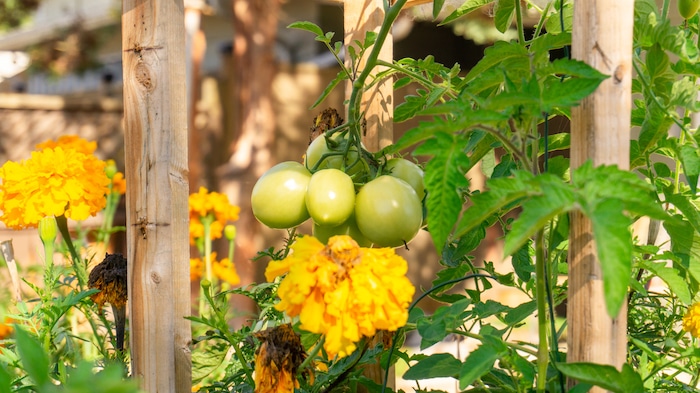
Cover Cropping
This sustainable agricultural practice involves planting a specific type of plant, known as a cover crop, after the harvest. Planting cover crops outside the growing season prevents soil erosion, suppresses weeds, and increases the amount of organic matter in the soil.
Composting
Composting organic matter, such as green manures and crop residues, creates nutrient-rich humus. This amendment enhances soil fertility, water retention, and microbial activity, promoting long-term soil health.

Integrated Pest Management (IPM)
IPM involves a combination of biological and mechanical practices to manage pests effectively without relying on synthetic pesticides. It may include growing beneficial insects, planting trap crops, or attracting natural predators.
Water Conservation Techniques
Practices like drip irrigation, rainwater harvesting, and soil moisture monitoring help optimize water usage and reduce runoff.
No-Till Farming
No-till farming minimizes soil disturbance by avoiding plowing or tilling. Doing so helps retain soil structure, prevents erosion, and sequesters carbon in the soil.
Agroforestry
Integrating trees and shrubs into the farming system through agroforestry can enhance biodiversity, provide shade, and improve microclimates. Trees can also act as windbreaks, reducing soil erosion and protecting crops.
Organic Mulching
Mulching means covering the soil with organic materials such as straw, leaves, or compost. It helps retain soil moisture, suppress weeds, regulate soil temperature, and improve nutrient cycling.
Polyculture
Polyculture is cultivating multiple crop species in the same field simultaneously — in contrast with monoculture, where a single crop is grown in a large area. This sustainable farming practice promotes biodiversity and reduces the risk of pest and disease outbreaks.
Profitability of Organic Vegetable Farming
Despite rising production costs, organic row crops can empower small and medium-sized farms to maintain a profit margin of nearly 33%. However, achieving and surpassing these numbers requires farmers to establish premium prices in line with the increasing consumer demand for organic produce.
The emphasis on soil fertility and long-term health, combined with government support and incentives, further strengthens the financial foundation of organic farming.

HomeBiogas 2
Designed for the next generation of green innovation.
Beyond financial considerations, the profitability of growing organic vegetables matches with health benefits and community engagement. Organic farmers enhance profitability with direct-to-consumer strategies and reinforce the relationship between market demand, sustainable practices, and community support.
Challenges in Organic Vegetable Farming
Organic farming has a significantly slow start due to a 3-year transition from conventional agriculture. Lower yields are typical during this period as the soil adjusts to organic practices. Additionally, the costs associated with organic certification, including inspection fees and record-keeping, can be burdensome for smaller-scale farmers.
Navigating these challenges requires strategic planning, financial management, patience, and a solid commitment to sustainability.
Another significant hurdle is the management of pests and diseases without the use of synthetic pesticides. Natural methods, like integrated pest management and companion planting, can be labor-intensive and may offer little targeted control, leading to potential crop damage and yield losses.
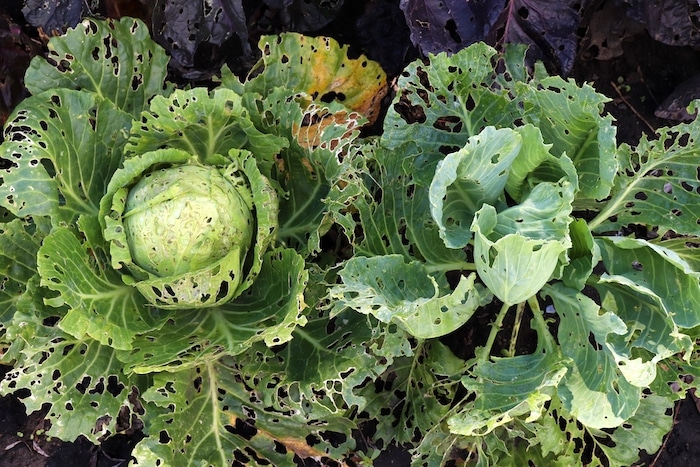
Weed management is also challenging, given the absence of chemical herbicides. Mulching, organic herbicides, and cover cropping can suppress weeds, but the effectiveness of these methods varies. Organic farms need careful ongoing management to balance weed competition, crop production, and agroecosystem health.
Examples of Organic Vegetable Farming
Gain inspiration from successful examples of organic vegetable farming around the world.
The Lamastus family is known for coffee processing and exportation. They oversee three distinct coffee farms in Panama: the El Burro Estate, the Luito Geisha Estate, and the Elida Estate. They’re committed to preserving this biodiverse area, teeming with exotic plants and animals. The farmers don’t use insecticides or herbicides, a deliberate choice to maintain their estates free from harmful chemicals.
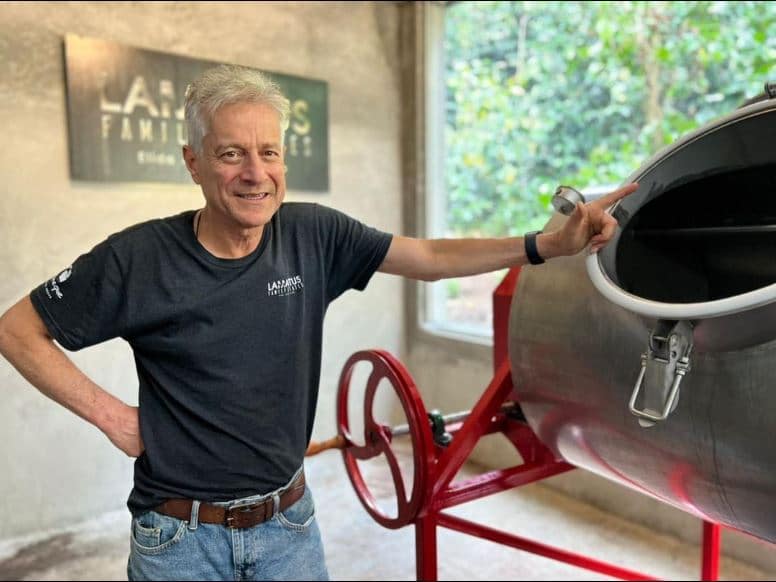
In alignment with Panama’s status as a carbon-negative country, the Lamastus family highly values sustainable practices. In recognition of their outstanding commitment, they were honored with the Social Responsibility Exporter of the Year title in 2019, solidifying their position as leaders in environmentally conscious coffee production.
On the other part of the world, Rachel, residing in Victoria, Australia, manages an expansive 5-acre property following self-sufficiency best practices. Her commitment to sustainability extends to cultivating a thriving fruit and vegetable garden and tending to a modest flock of livestock, including sheep, chickens, quail, and ducks.
With an enduring passion for fresh produce, Rachel uses organic biofertilizers to grow her fruits and vegetables. Whether it’s the perfume of a peach, the crispness of an apple, or the flavor of a vine-ripened tomato, Rachel appreciates how these homegrown delights surpass their store-bought counterparts.
Meet HomeBiogas – Turn Your Organic Waste into Clean, Renewable Cooking Gas & Rich Fertilizer for Your Backyard
HomeBiogas systems support organic vegetable farms with sustainable and cost-effective solutions for a circular approach to farming. HomeBiogas 6, in particular, is the perfect solution for small and medium organic farms. This cutting-edge biogas system converts organic waste and animal manure into high-quality bio-fertilizers and clean cooking gas. This closed-loop process significantly reduces the environmental impact of agricultural waste while simultaneously providing valuable resources for the farm.

One of the critical advantages of HomeBiogas systems is their ability to manage agriculture organic waste with zero costs. The system utilizes anaerobic digestion to break down organic matter, producing biogas, a clean and renewable energy source for the farm. Instead of permanent costs for waste removal or resorting to open-field burning, organic farmers can harness the power of biogas production to manage residue efficiently, contributing to a more sustainable and eco-friendly farming model.
Beyond biogas generation, HomeBiogas systems produce nutrient-rich organic fertilizer. Unlike synthetic fertilizers that may contain harmful chemicals, the organic fertilizer from HomeBiogas is entirely natural, aligning seamlessly with the principles of organic farming.
Summary
With its emphasis on balance and stewardship, organic farming is a model for agricultural practices that have a low impact on the world.
Ultimately, the narrative of organic vegetable farming is one of harmony – a harmony between cultivation and conservation and between economic viability and environmental responsibility. As you take this path, guided by organic certification standards, sustainable practices, and innovative solutions, you contribute not only to your well-being but also to the health of the planet.




